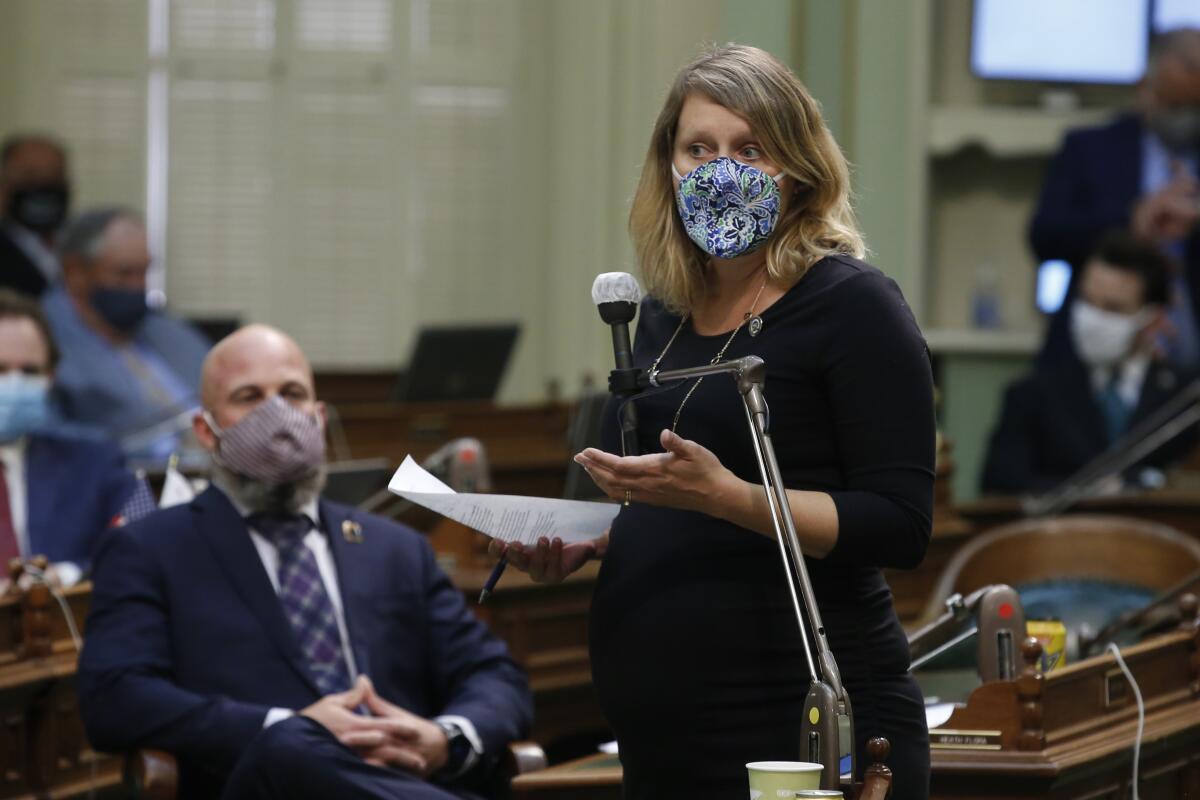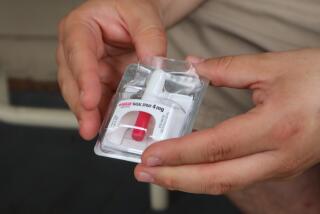New workplace mandate for COVID-19 vaccine pushed by California lawmakers

SACRAMENTO — California would require workers to be vaccinated against COVID-19 under a bill introduced Friday by a group of Democratic lawmakers pushing for stricter innoculation laws in the state.
Assembly Bill 1993 by Assemblywoman Buffy Wicks (D-Oakland) would require employees and independent contractors to be vaccinated against COVID-19 as a condition of employment unless they have an exemption based on a medical condition, disability or religious beliefs.
“Keeping our communities safe is our top charge as elected officials,” Wicks said. “And we know that none of us want to go back to closing down schools or closing down businesses ... We know if we’re vaccinated, we can combat this.”
Under the bill, the California Division of Occupational Safety and Health would work with the state’s public health department on guidance for employers on what would constitute a valid exemption. Businesses would face a penalty for failing to comply, although the amount has yet to be determined, Wicks said. Employers would have to notify the state that all workers are vaccinated against COVID-19 by Jan. 1, 2023.
John Arensmeyer, chief operating officer for the advocacy group Small Business Majority, said one uniform vaccine law would make it easier than piecemeal requirements that depend on where a person works.
“Small businesses don’t want to be traffic cops in debates about public safety,” Arensmeyer said. “They’re looking for a common statewide standard that disentangles them from politics and enables them to operate their businesses safely and predictably.”
Wicks’ bill is the fourth piece of legislation introduced in the past several weeks by lawmakers who formed a vaccine working group this year.
Assembly Bill 1797 by Assembly member Akilah Weber (D-San Diego) would allow California school officials to more easily check student vaccine records by expanding access to a statewide immunization database. Senate Bill 866 by Sen. Scott Wiener (D-San Francisco) would allow children 12 and up to be vaccinated without parental consent. And SB 871 by state Sen. Richard Pan (D-Sacramento) would require the COVID-19 vaccine for all schoolchildren in the state.
The bills have set off a feverish debate familiar in Sacramento over contentious issues including a parent’s right to make medical decisions for their children and a long-inflamed battle over vaccine laws.
“These bills show the disconnect from ‘the people’ on the part of the California [Democrat],” said Stefanie Fetzer, founder of Parents United 4 Kids, which advocates for parental choice. “People are tired. They want to go back to their normal lives. The rest of the world is moving on now.” “
Wicks’ workplace bill announced Friday comes after a plan last year to introduce a wide-ranging vaccine bill was abandoned in the final weeks of the legislative session. Wicks led those attempts, but said she ran out of time to craft “the strongest bill possible.” Draft language of Wicks’ bill, which was never formally introduced, called for Californians to show proof that they are vaccinated to enter many indoor businesses and required both public- and private-sector workers to be fully vaccinated or regularly tested.
“We decided to decouple those and make this bill more focused specifically on employers because of the workplace safety piece that we think is critical,” Wicks said Friday.
Dr. John Swartzberg, a UC Berkeley infectious disease expert, said mandates have been shown to work, even if “nobody likes being told what they have to do.”
“We have lots of things that we do mandate,” Swartzberg said in a virtual media conference with Wicks. “I remember when seatbelts were somewhat controversial when they were first proposed, and look at the number of lives saved for just wearing something around your lap.”
More to Read
Sign up for Essential California
The most important California stories and recommendations in your inbox every morning.
You may occasionally receive promotional content from the Los Angeles Times.











